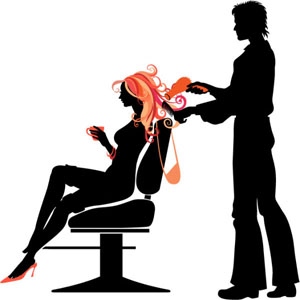I spent the five happiest years of my life in a morgue. As a forensic scientist in the Cleveland coroner’s office I analyzed gunshot residue on hands and clothing, hairs, fibers, paint, glass, DNA, blood and many other forms of trace evidence, as well as crime scenes. Now I'm a certified latent print examiner and CSI for a police department in Florida. I also write a series of forensic suspense novels, turning the day job into fiction. My books have been translated into six languages.
Wow, best of luck!! I would suggest you Google the heck out of the facility and find out everything you can about what they do—if it’s a state lab, what kind of evidence they accept from the state agencies. They probably test for illegal drugs, but are they testing the actual drugs seized, or bodily fluids from arrested people, or blood/urine/gastric samples from medical examiners or coroners offices—or all three. If you can’t find the information then that’s a good and reasonable question to ask. They’re sure to ask you what kind of instrumentation you’ve worked with, in class or in an internship, etc.—GC Mass Spec, IR, etc., how much experience and what kind of samples you tested. PS If it’s not posted you might want to ask about hours and/or overtime. They might be 9-5 M-F or they might be 24/7, depending on the size and location.
Best of luck!!
Some people don't have enough to do!
On the victim’s body? Most likely not because after that much time the victim would most likely be skeletal remains only, if buried and certainly if on the surface. If the body was in some kind of container, sealed, it might be completely decomposed, mummified or preserved, depending on circumstances. If the killer’s blood or semen got on some object that was with the body, it could conceivably survive if protected, but it would be very unlikely to yield a usable DNA profile.
Hope that helps!!
I don’t know what you’re referring to.
Private Detective
Nightclub Promoter
 How do you decide who gets into your club?
How do you decide who gets into your club?
Hairstylist and Makeup Artist
 How much am I supposed to tip my hairstylist?
How much am I supposed to tip my hairstylist?
I have absolutely no idea.
That depends entirely on where you work and what your job is. If you’re a ballistics expert, you’ll spend your days looking at guns and ammunition. If you’re a DNA analyst, you’ll be in a lab with micro tubes. If you’re me, you spend a lot of time looking at fingerprints and sometimes go to crime or death scenes.
I’ve done microscopic comparisons of animal hairs, when I was doing hair and fiber comparisons at the coroner’s office, to establish a connection between items found on a suspect’s clothing or environment and items found on a victim’s clothing or environment. That’s about it.
-OR-
 Login with Facebook
Login with Facebook (max 20 characters - letters, numbers, and underscores only. Note that your username is private, and you have the option to choose an alias when asking questions or hosting a Q&A.)
(A valid e-mail address is required. Your e-mail will not be shared with anyone.)
(min 5 characters)
By checking this box, you acknowledge that you have read and agree to Jobstr.com’s Terms and Privacy Policy.
-OR-
 Register with Facebook
Register with Facebook(Don't worry: you'll be able to choose an alias when asking questions or hosting a Q&A.)